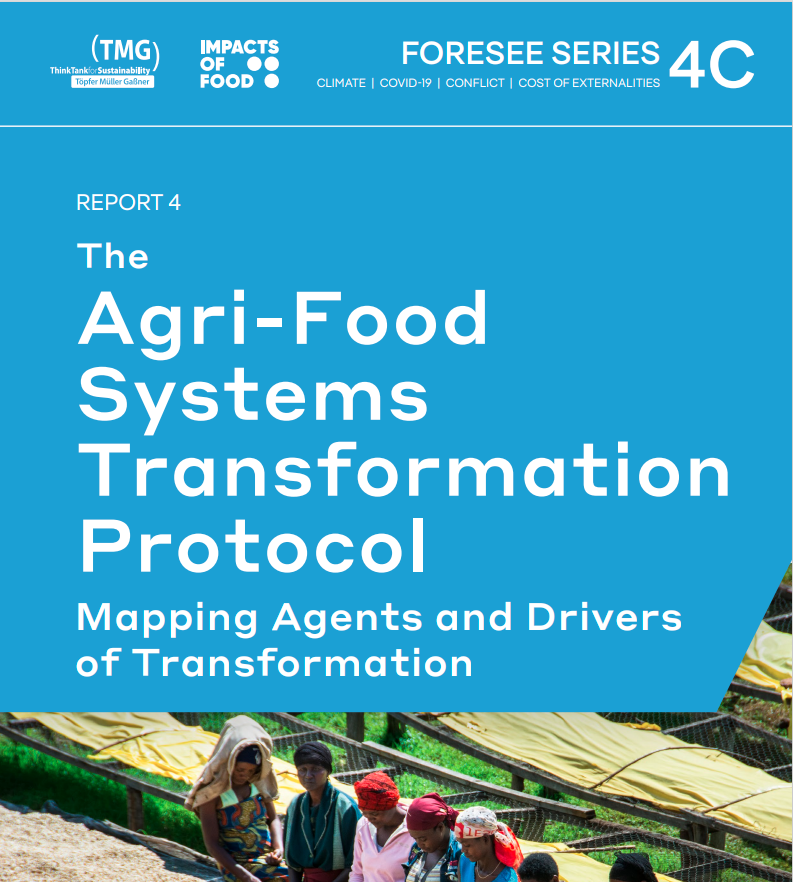Multiple interlinked crises – collectively known as the 4Cs (Climate, (Post-)Covid, Conflict and Costs) continue impeding advancements in globally agreed sustainable development goals and threaten the wellbeing of humans and nature. Despite widespread discourse and consensus that it needs a transformation of our agri-food systems to meet these challenges adequately the precise conceptualization of the term frequently lacks clarity.
As part of TMG’s aim to develop a systematic understanding of the transformation of food systems, TMG investigates the state of the debate, key actors and drivers, and strategies for concrete political and structural pathways to transformation. After a first set of three reports under the overarching title FORESEE (4C): The Transformation of Agri-Food Systems in Times of Multiple Crises, now a fourth report is being launched: The Agri-Food Systems Transformation Protocol – Mapping the Agents and Drivers of Transformation.
The report acknowledges the consensus on the imperative transformation of agri-food systems to address global challenges but notes the lack of agreement on driving factors and the necessary agents supporting their implementation globally. The report advocates for a multi-level governance framework, incorporating global agreements (primarily the three Rio Conventions – CBD, UNCCD, UNFCCC), national pathways, and implementation. It introduces the Agri-food Systems Transformation Protocol as a decision-support tool at the strategic and operational level to guide diverse actors with the development of systemic solutions for sustainable agri-food systems.
To ascertain the agents (“who”) and drivers (“what”) pivotal for the successful transformation of agri-food systems, examples of food systems transformation were analysed spanning five continents. The findings reveal that optimal agri-food systems transformation is realized through governmental support, community leadership, and adherence to agroecological principles. Furthermore, a successful transformation pathway is distinguished by the presence of an enabling environment, typified by strong political commitment and active participation.
The full series, including the latest report, can be downloaded here.
